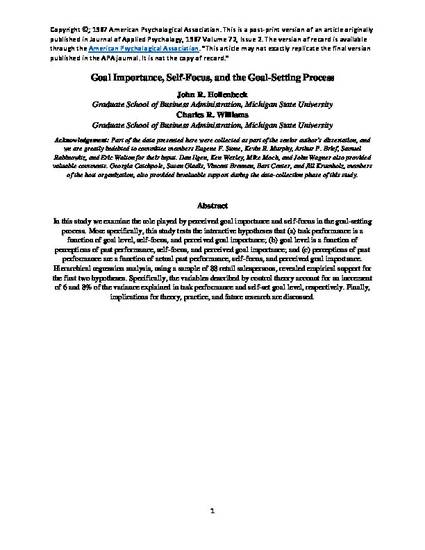
In this study we examine the role played by perceived goal importance and self-focus in the goal-setting process. More specifically, this study tests the interactive hypotheses that (a) task performance is a function of goal level, self-focus, and perceived goal importance; (b) goal level is a function of perceptions of past performance, self-focus, and perceived goal importance; and (c) perceptions of past performance are a function of actual past performance, self-focus, and perceived goal importance. Hierarchical regression analysis, using a sample of 88 retail salespersons, revealed empirical support for the first two hypotheses. Specifically, the variables described by control theory account for an increment of 6 and 8% of the variance explained in task performance and self-set goal level, respectively. Finally, implications for theory, practice, and future research are discussed.
Copyright © 1987 American Psychological Association.
This is a post-print version of an article originally published in American Psychology Association.
"This article may not exactly replicate the final version published in the APA journal. It is not the copy of record."Available at: http://works.bepress.com/chuck_williams/14/
